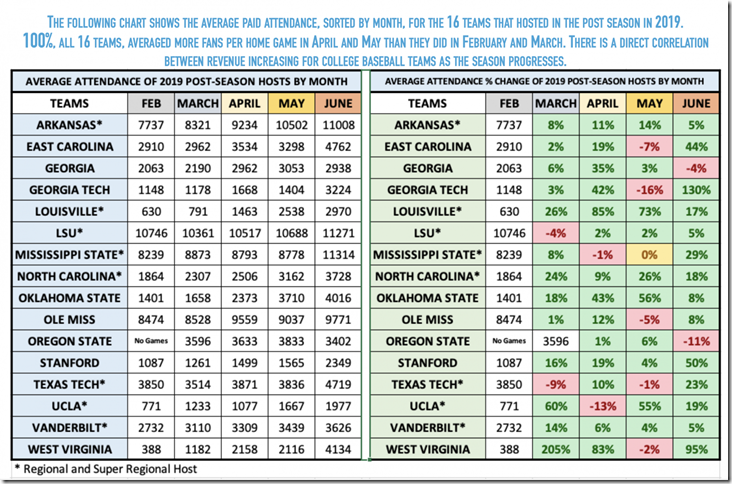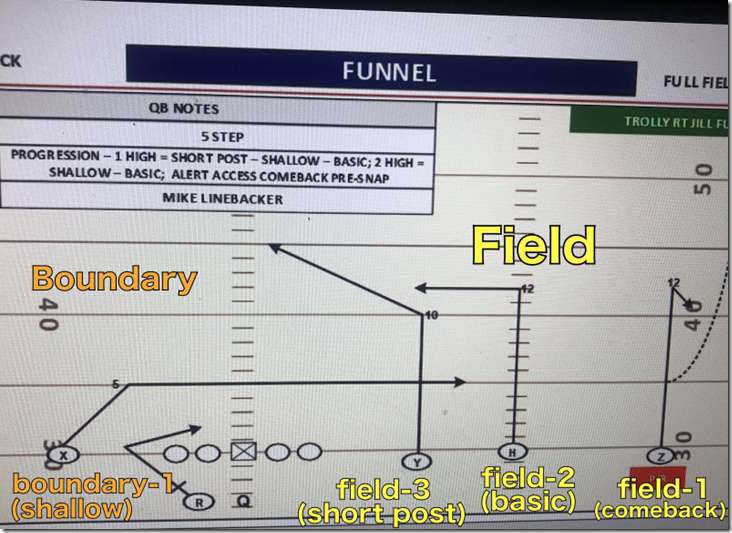
Unverified Voracity Wants Stevie Nicks Combat Basketball

Chuck Christian on Dr. Anderson. In the NYT:
For more than 40 years, Chuck Christian did not call himself a victim because he did not think he was one.
He was a muralist who had played tight end at Michigan. He grew up poor in Detroit but came to be a world traveler. He contracted prostate cancer and outlived his doctors’ predictions.
Then, in February, an old teammate called.
Remember Dr. Robert E. Anderson? The team doctor at Michigan who performed painful, unexplained rectal exams? Someone reported him, the former teammate said, and it turns out that what he did to you, and to so many other players, was probably a crime.
“I realized that he had victimized so many of us,” Christian said in a recent interview.
Schlissel says things that aren't news. A lot of attention has fallen on a Wall Street Journal article in which Mark Schlissel throws some cold water on the idea of playing sports this fall:
"If there is no on-campus instruction then there won't be intercollegiate athletics, at least for Michigan," Schlissel said to the WSJ. He later added he has "some degree of doubt as to whether there will be college athletics (anywhere), at least in the fall."
Warde Manuel said something identical three weeks ago, so I'm not sure why this one is gathering the Twitter yahoos and the other one isn't.
In any case, Michigan is planning on having students on campus for a "public health-informed" fall semester with "as much in-person instruction as possible." That would clear the hurdle Schlissel and Manuel have set. I don't think anyone with an inch of sense should be issuing statements of certainty.
[After THE JUMP: the dream of baseball when it's warm]
the above conversation summarized at the Detroit News
Baseball during baseball season: possible! Erik Bakich is spearheading a new model for college baseball that moves the start of the season back to late March, and it looks like it's got a shot:
“This isn’t the competitive equity proposal we have seen in previous years, and the coaches who have been working on this proposal do not need changes in order to have successful programs,” Michigan coach Erik Bakich said. “This is about the sustainability and growth of college baseball for the 2022 season and beyond. Universities and athletic departments across the country are facing a financial crisis, and our sport operates at a significant financial net loss amongst teams. That’s not a good combination.
“Regardless of geography, playing college baseball in February and early March does not make sense financially, academically and certainly not medically speaking,” he continued. “If college baseball realistically wants to increase scholarships or add another full-time coach at some point in the future, improving our fiscal bottom line is the next step. If we do nothing, we may not like the decisions that will be made for us.”
The proposal notes that attendance increases across college baseball as the season moves into spring.
The coming financial crunch puts baseball in a position that most other sports aren't. It's a sport that loses money, but unlike, say, swimming, a significant portion of this is a self-inflicted wound. Baseball has a path to more revenue: more attendance, more attention, more programming for conference networks. Now that everyone's under threat a common-sense proposal to save baseball scholarships and coaching jobs might actually get done. One pandemic silver lining.
Heck, maybe hockey will agree to have regionals in the vicinity of fans. (They will not.)
Gattis explains "funnel." Chalk talk from the Athletic with Mike Leach, Joe Moorhead, and Josh Gattis explaining key plays in their offenses. Moorhead naturally chooses an RPO that has an evil pop pass attached to the run action. Gattis goes in depth on "funnel," which is a standard pass concept:
“Funnel” originated from Moorhead. Gattis was an assistant at Penn State in 2016 and 2017 when Moorhead was the offensive coordinator. Gattis took over as Michigan’s offensive coordinator in 2019 and made some of his own tweaks to “funnel.” The play originated from four verticals out of three-by-one but with the single receiver running an under route (the shallow by the X), hence the name “funnel.”
… Funnel is a five-step concept that falls into the over/under family. The defining characteristic of an over/under concept is the inside triangle. With this play, the triangle is formed by the basic, drive and angle route.
“As far as the progression for the quarterback, anytime he sees access — and what we mean with that is anytime he sees an off corner, he’s going to the 12-yard comeback,” Gattis said. “If the seam defender buzzes underneath, then he gets his eyes inside to the inside triangle.”
It gets more complicated from there. Includes successful play against Ohio State. /waves tiny flag
Cutting sports won't help your bottom line as much as you think. A lot of sports teams are going to be on the chopping block over the next couple years. These cuts will be advertised as saving X dollars based on some faulty assumptions:
As far as the athletic department is concerned, the tennis and swimming programs lost $2.6 million this year. But the athletic department is just one component of the larger university. Based on Schwarz’s analysis of the financial reports ECU submits to the NCAA — an analysis that assumes every athlete leaves when their sport is cut and was paying full tuition (which is not always the case) and that East Carolina isn’t at full enrollment — the two sports could actually generate a profit of as much as $22,000 a year for the university, even after factoring in what they cost the athletic department. …
In the case of East Carolina’s swimming teams, the university funded only 23 scholarships for 54 swimmers during the 2018-19 academic year, according to the NCAA financial reports. That means the equivalent of 31 swimmers were essentially paying their own way to East Carolina. The university’s per-student cost is minimal — the dorms are built, classes conducted and meals cooked either way — which means every swimmer paying part of his or her way to ECU is pumping money into the university’s coffers.
That’s especially true if they’re foreign students paying full freight. In the case of swimming, 23 of 48 current athletes have listed hometowns outside the United States.
In turn this analysis has a hole in that it assumes ECU's enrollment will drop because the swimming team has been axed:
I have assumed that in the absence of these programs, ECU will lose every single athlete (or their future equivalents) to another school. Even the walk-ons.[5] That assumption is strong, and could be relaxed based on info from school.
A swimming probably a minimal impact on the enrollment decisions of a large number of the walk-ons, and there's a zero-sum aspect if many sports programs end. Presumably walk-on swimmers are not going to college on the off chance they find a career as an outboard motor.
Schwarz is correct that schools are overstating the cost of a scholarship by pegging it at the retail value of tuition when the actual cost to the university is vastly lower, and it is much better assumption that scholarship swimmers won't be at ECU without that scholarship. Axing those so you can keep paying administrators mid-to-high six digit salaries—ECU's AD makes 500k before bonuses—shows you where the priorities are.
Etc.: The origin story of Stevie Nicks' Fajita Roundup. An oral history of Bill Laimbeer's Combat Basketball. Replacing Josh Uche. Two Michigan teams make Bill Connelly's list of best teams to not win the national title. Spencer Hall and Jason Kirk on This American Life, which was inevitable. Strange Random House blog "Hazlitt" hosts their piece; I imagine Ira Glass reads nothing else.
Chris Hutchinson on how it's going for him during the pandemic. Fascinating article on the scandal engulfing card collecting. The Onion is supposed to be fiction.
That onion article kept getting more and more brutal. Then they twisted the knife at the end
2006 sucked, but I think 2016 and 2018 are more painful
"I don't think anyone with an inch of sense should be issuing statements of certainty."
I believe the commonly used measure of sense is weight (or is it volume?).
mm, Newton-meters (foot-lbs for you silly imperials)
What about an iota?!
I think it's hilarious that Alabama claims 12 National Championships and at least five of them are complete bullshit (9-2 in 41 is complete joke) but Michigan won't claim the 47 National Championship even though the team was undefeated.
I guess that would be considered poor form at the cotillion for us to do some that gauche.
As far as I know Michigan does claim the 1947 national title.
Holy shit that oral history of Bill Laimbeer's Combat Basketball is freaking hilarious. Though half way through I started to get the idea it wasn't real and that makes me sad. I really want it to be real. As someone who grew up in LA I don't have the same feelings about Laimbeer as most people here but I do remember that game.
Twitter yahoos? Kind of redundant.
I'm not sure I understand Schwarz's argument, at least how it is represented in the article.
It sounds like he's focused on how the student count is affected by cutting sports. But I assumed that the savings is in not having to travel (actual travel and accommodation costs) and fewer coaches.
Brian's larger point still stands, but I think Schwarz's critique is pretty weak.
But the cost of the scholarship is the retail value since that's the opportunity cost of not accepting another full tuition paying student that could then take that dorm room and those class spots.
It's an absurd assumption to think they'd lose enrollment. Even schools like East Carolina turn down students that they could take if more spots were freed up.
Cutting sports never really made sense because, as noted, view of the non-revenue ones "cost" a university all that much, at least on the men's side, because they rarely have full scholarships. Maybe a couple of elite men have full rides, but as noted here the majority of swimming and diving team members are paying to be there. Same with track and field. What always happens is a school has a good football or basketball hire, wins some games and maybe punches above their weight class for a while, and presidents and ADs suddenly dream they are the next Boise St. and spend like the good times won't end. Then they inevitably do end and, much like the NCAA punishing WKU because UK got caught cheating, these non-revenue teams get threatened with extinction because nobody wants to take a haircut and accept they screwed up.
But it's not just about scholarship costs, right? I would think the main cost is travel and coaches.
I believe the poster your responding to is pointing out a failure these universities have made to build a sustainable athletic department. They have essentially put all their money into the football program with the hope it`ll become a powerhouse and be profitable. Most don't get there and worse lock themselves into long term commitments of future resources they do not have.
I appreciate the main photo of the article highlighting MSU's ugly ass baseball grey unis.
The Bill Laimbeer's Combat Basketball story is fantastic!
I'd read his books.


Comments